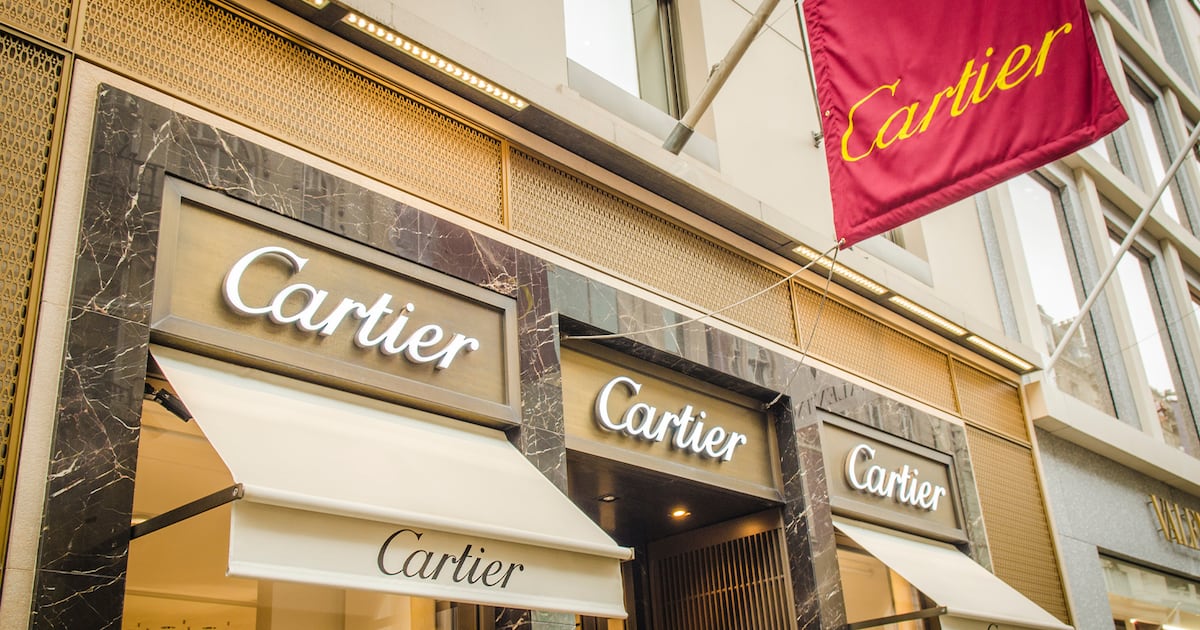


Luxury stock investors are facing the risk of more bad news as the likes of Burberry Group Plc and Hugo Boss AG fell short of already reined-in expectations and economic data from China dents chances of a near-term rebound.
Richemont SA will offer fresh insight on how luxury companies are coping with a sector-wide growth slump when it reports third-quarter sales on Thursday. The Cartier-owner suffered a rating cut by Investec Plc this week, following at least six downgrades for industry leader LVMH in the second-half of last year.
Concerns about demand for luxury goods were amplified on Wednesday with lacklustre economic growth figures from China, whose shoppers account for about a quarter of the estimated €362 billion ($394 billion) global market, prompting an across-the-board drop in the European sector.
Bargain hunters are also less keen to buy these battered stocks: Though valuations have fallen more than 20 percent since last year’s peak, investors were rushing to sell European luxury goods stocks after Burberry and Hugo Boss warnings. It indicates that the forward price-to-earnings ratio for the group hasn’t priced in the full extent of the industry’s woes.
“Sentiment remains jittery around where future downgrades will come from,” said Swetha Ramachandran, a fund manager at Artemis Investment Management.
Most brokers have scaled down their earnings expectations by over 5 percent since September, with the sector’s fortunes remaining unclear and hinging on a still-fragile global economic recovery.
Investors expect this year’s start to compare particularly unfavourably with 2023′s initial optimism, when China’s reopening fueled a splurge in high-end watches and pricey coats, briefly pushing LVMH’s valuation above $500 billion.
“We see few catalysts for the luxury sector before April/May 2024,” HSBC analysts led by Aurelie Husson-Dumoutier said in a note. What’s more, price increases are becoming more of an issue for aspirational consumers, with luxury demand weakening over the holiday season, the analysts said.
Even so, a sector that’s going through a difficult period still has room for winners.
Hermes, especially, has shown less of the weakness of peers as demand remains high for its coveted handbags that can sell for anywhere from over €8,000 into the tens of thousands of euros.
“There will probably be big differences between stocks,” said Bruno Vacossin, a senior portfolio manager at Palatine Asset Management. “I expect a big performance gap between top players like Hermes and LVMH and the industry’s laggards.”
LVMH reports annual results on Jan. 25 and Hermes on Feb. 9.
Many are keeping their long term bets on a sector that is known for its ability to generate superior growth due to pricing power that typically beats inflation and protects profit margins. A large majority of analysts tracked by Bloomberg still recommend buying LVMH and Richemont, while the rest are neutral.
A rebound in earnings is likely six months away as economic growth accelerates and travelling from China picks up, said Artemis Investment Management’s Ramachandran.
The sector is currently on low valuation multiples and waiting for good macroeconomic news such as lower interest rates and rising real wages for entry-level fashion and aspirational brands, said Bloomberg Intelligence analyst Deborah Aitken.
Until then, more risk remain, especially for players at the bottom-end of the pyramid, according to Ariane Hayate, a fund manager at Edmond de Rothschild Asset Management.
“For sure, we don’t expect to get a lot of bullish messages,” she said.
By Julien Ponthus